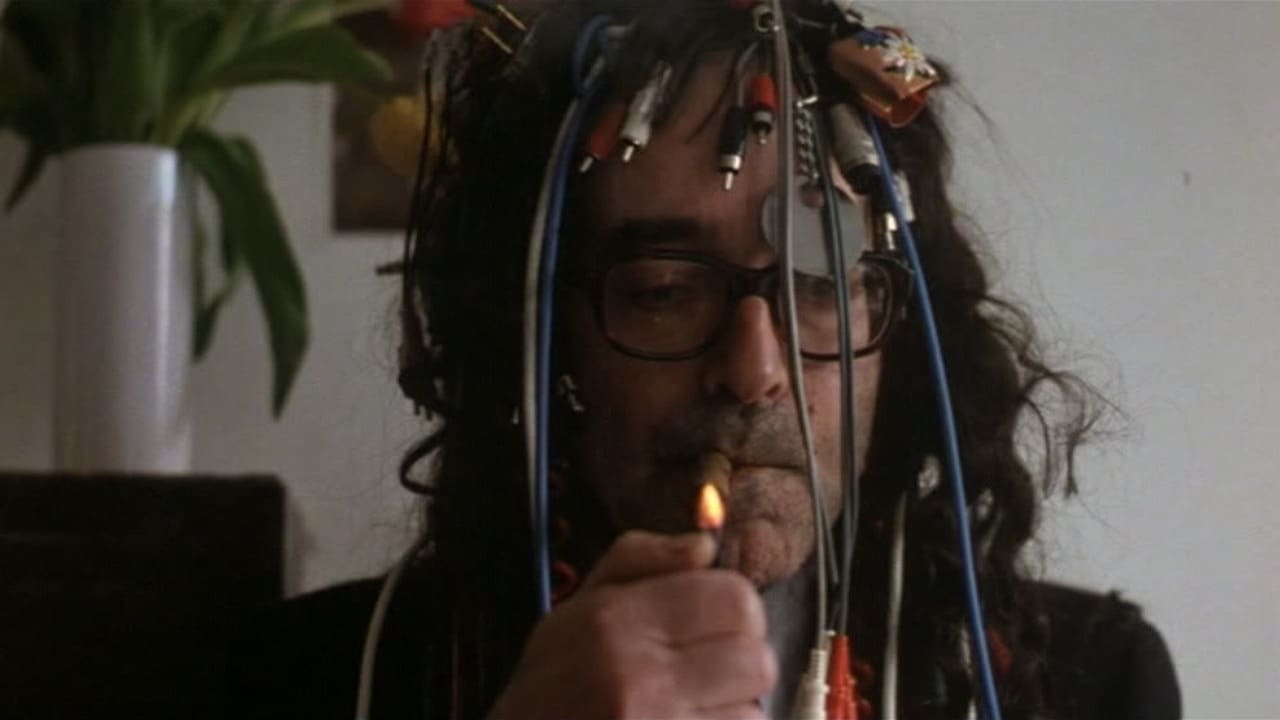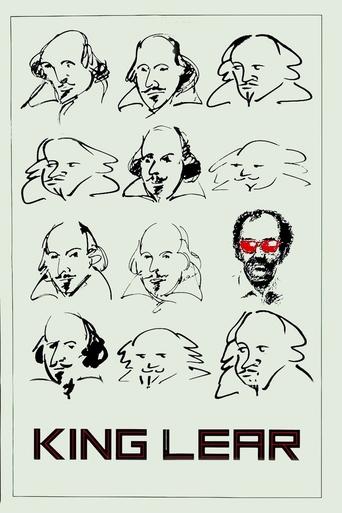ReaderKenka
Let's be realistic.
Smartorhypo
Highly Overrated But Still Good
Allison Davies
The film never slows down or bores, plunging from one harrowing sequence to the next.
Kinley
This movie feels like it was made purely to piss off people who want good shows
guedesnino
For Godard nothing seems to be as complicated as the simpler things. Therefore, to expect that his film "King Lear" was a passable film adaptation typical of Shakespeare's tragedy, it is at least the public's total lack of knowledge about the director or incoherence on the part of critics.Although some lines of Shakespeare's play are used in the film, only three characters (Lear, Cordelia, and Edgar) are, so to speak, "presented." King Lear is, without any confessionals, a difficult film, and so it is, if we consider Godard an insane director (in the positive sense), we have in this his visual experiment, the apex of human insanity when questioning art in a new world Of a major nuclear disaster (in reference to the Chernobyl episode).I view Godard's films as a laudable experimentation, which makes it unmistakably unique to each film. Godard is one of the rare, almost sole director who succeeds in affirming cinema through denial, thus more than presenting or affirming what cinema is, Godard discusses the various possibilities of being and making movies. And it does this by laughing and mocking the audience, but not in a gratuitous and unnecessary mockery instead, laughter is in front of our lack of care in assimilating the narratives of a film, seeking understanding and logic for everything, including in art, that historically sought Always breaking with the conventional, taking into account the very incoherence that is humanity and its disastrous way of living.
Gloede_The_Saint
I simply can't understand this. Whenever a film is extremely original this happens, oddly enough this do not seem to be the case with the oddities of the 30's and 40's, so I do smell a little discrimination.After watching this film, with mixed expectations I might add I found that it's one of the greatest films I have ever seen. A masterpiece. Now I will not go around hitting other people with my taste but I believe there's a few things that should be said so you know what you're getting yourself into:1. It's one of the weirdest films of all time - It's not just surreal but a tiny bit minimalistic too. - People speak like they were in Inland Empire.2. It focuses a lot on technical skills and picture making.3. As most of Godards films he's trying new things out. And it could be viewed as a project of some kind.4. One of the characters, the one played by Godard actually, mumbles a lot, also in his narrations, this seem to be more of a comic relief after a while but at the opening it can be found as annoying and it seems to be the most criticized part of the film.If you don't object to any of these things and have liked/loved other Godards of the 80's, 90's, you will like/love this. I most definitely love it and I hope you do too.
jyrgen755
This film is absolutely brilliant. Weird characters and the fact that there's NO-THING really going on made this film interesting for me. Other people might find this film pointless and totally boring, but for me it's a treasure. I don't know anything about Shakespeare's 'King Lear' so I can't say if this film has anything to do with the actual play at all. This is exactly the kind of film that makes you think. After seeing this film you wonder what did the director want to tell me? Because clearly this film is made to communicate with the audience, it's an expression of the film maker's ideas, views and emotions. Or in other words... IT'S ART! The same goes to another Godard film 'Numero Deux'.
MisterWhiplash
It's interesting that director Jean-Luc Godard flashes up the title card King Lear: Fear and Loathing throughout this film, as he himself appearing on the screen looks like Hunter S. Thompson...that is, if HST was French and on a mix of downers and trippers. Upon watching Godard's King Lear the first time, I understood this much - William Shakespeare Junior the Fifth (Peter Sellars) is in the process of writing something for the Cannon Group in a post-Chernobyl mind-f*ck parallel universe, where art and movies are faded memories and where Don Learo (Burgess Meredith) and his daughter Cordelia (Molly Ringwald) talk of separate philosophies and emotional struggles. Then, other than that, I was totally befuddled by the cinematic approach Godard was taking to the material. And yet there was something about the film that intrigued me, how there was such a height of intellectualism going on from Godard's head to the celluloid that it almost reverberated to ludicrous-ness, so I watched it again, giving it another shot.What King Lear does accomplish, at least up to a point, is that Godard's trying to get inside the mind of a writer (if not himself, which is more than likely the case, then of the spawn of Shakespeare), as he tosses about various ideas and nonsense to pound out a story and characters. The film also gives some interesting and true improvisation time for an actor like Meredith, and once in a while Godard's Professor Pluggy makes a point of fascination (i.e. the significance of images and emotions). What King Lear doesn't accomplish is some sense, even sense that intellectuals could be able to latch onto. Godard's basically making a film for himself, delving into themes and stylistic techniques that only he would understand, and since he limits what the audience can latch onto and comprehend of what philosophical goals and meanings he's derived from Shakespeare's classic, it's pretentious more often than not. The mis-en-scene is a bizarre contrast, as everything in the camera-work is clear and lovely, while the audio side of things almost works to annoy the viewer. The sounds of seagulls are practically inexplicable (unless he's trying to have the POV of the character every time a seagull chirps, which is over-the-line for me), the over-lapping of puzzling Shakespearian-esquire philosophy over some of the dialog is too much to concentrate on and digest, and the way Godard talks he might as well be speaking through a voice box.So, I think that King Lear is a bit of a mess, but for some reason I don't think it's a failure. It's the kind of mess that only a director like Godard could go for and make his own. A hack wouldn't even KNOW how to use such weird narrative devices like this man does. The film could even be of use to be dissected by someone scene-by-scene (although it could perplex someone enough to destroy the videotape their watching and curse Godard for all eternity), and as an experiment of treating Shakespeare it's not the worst in history. But I would not want to test myself with this again. Even Woody Allen (who bookends the end of the film with only minimal Shakespeare dialog and hands amusingly fiddling on the film) must've been scratching his head through most of this. So it's recommendable not so much as an enjoyable poetic musing like Band of Outsiders or even Pierrot Le Fou's oddball mixture. Reall, it's a challenge for a film buff that'll at best intrigue and get thinking and at worst be something to throw up in the air and shoot at with a bebe gun.

